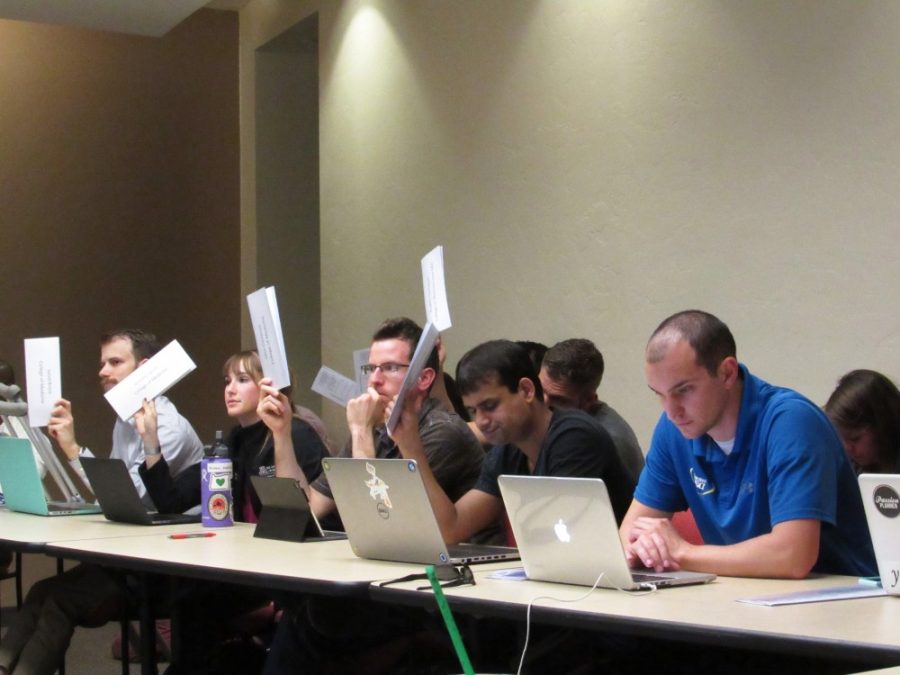The Graduate and Professional Student Council voted to approve their 2017-2018 budget, their 2025 strategic plan and received an update on their ongoing elections.
The council spent the majority of the meeting amending their budget, passing a balanced budget for the next year before entering executive session and then adjourning.
The budget provides the general council a $5,000 discretionary fund, which this year’s general council hopes next year’s council uses to increase their approval of $1,500 to the campus pantry.
The president’s stipend was also increased in the budget to match the amount given to other graduate assistants, and the marketing budget and the salary maximum of the legislative affairs director were increased.
Alma Hernandez, GPSC elections commissioner, briefed the council on the ongoing GPSC general election.
Due to recent GPSC votes and the Associated Students of the University of Arizona Supreme Court advisory decision recommendations, Hernandez said she would have to recontact candidates now ineligible to run for GPSC.
The period for GPSC campaigning has begun and voting on all candidates will occur Tuesday, April 11.
GPSC Administrative Vice President Jasmine Sears informed the council their Professional Opportunities Development funding account had a remaining balance of $2,000, addressing fears it may have been overdrawn.
The council approved $15,000 for Research and Project Grants in their approved budget as well as allocating $10,000 to national GPSC travel and $2,500 for in-state GPSC travel, which is customarily used to attend GPSC conferences and legislative outreach events.
The council voted to approve or provisionally approve three measures brought forth from the appropriations committee
The council tabled discussions to provide POD funding to groups of students to buy and then donate study materials used to prepare for an accreditation exam unrelated to their major.
The council ended their meeting by entering into executive session to discuss a Daily Wildcat article.
According to Arizona Open Meeting laws, public bodies may enter into executive session for “The discussion or consideration of employment, assignment, appointment, promotion, demotion, salaries, discipline, resignation, or dismissal of a public officer, appointee, or employee of a public body may take place in an executive session,” among other reasons.
Follow Randall Eck on Twitter.









